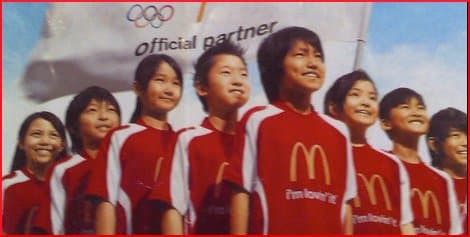
Last time, Childhood Obesity News mentioned Dr. Andrew Bremer and his concern that “McDonald’s and chains of its ilk are contributing to obesity.” That means fast-food joints in general. Some of them are actually changing their ways, often because of legislation, sometimes because they want a few public-relations points chalked up in their column.
In mid 2011, the Jack in the Box chain stopped including toys with kids’ meals in Los Angeles. About a year ago, the country of Chile passed a law banning toys from children’s food products, whether they are “happy meals” served by fast-food outlets, or prizes in cereal boxes. Last month, McDonald’s of Brazil was fined $1.6 million because the company violated local laws regarding ads aimed at children.
Only a few days ago, Taco Bell announced its decision to stop selling meals in children’s versions, starting in January of next year. The altruism level of this move is not high, because, as a company spokesperson took care to point out, the main customer demographic is young people in their late teens and early 20s. Kid meals account for only about one-half of 1% of the corporation’s profit. (McDonald’s, on the other hand, makes about 10% of its money from the children’s line.)
The corporate machine deduced that, no matter what you do about creating a child-oriented menu, someone is bound to be unhappy with it. So why even have a kids’ menu at all?
McDonald’s is sooooo busted
Childhood Obesity News has also been talking about McDonald’s, and about Corporate Accountability International, an organization that loves to give McDonald’s a hard time by bugging it about details like accountability at the shareholder meetings. For Salon, Michele Simon wrote about this year’s gathering, which was addressed by the fast-food giant’s chief executive officer, Don Thompson, who makes more than $8 million per year.
He got caught telling a slew of fibs — for instance, that a Chicken McNugget is a healthful snack, when actually it contains a couple of dozen ingredients that are not chicken. In response to Thompson’s claim for “real eggs,” Simon looked up what’s in them:
Liquid Margarine: Liquid Soybean Oil and Hydrogenated Cottonseed and Soybean Oils, Water, Partially Hydrogenated Soybean Oil, Salt, Soy Lecithin, Mono and Diglycerides, Sodium Benzoate and Potassium Sorbate (Preservatives), Artificial Flavor, Citric Acid, Vitamin A Palmitate, Beta Carotene (Color).
Simon also asks:
While it’s true McDonald’s sells a side salad on its dollar menu (one of 13 items), if you only have a one dollar to spend, what’s the likelihood you would choose a small salad over the 310-calorie ‘grilled onion cheddar burger’?
That complaint seems like a reach. It’s really not the corporation’s fault what the customer chooses. Another complaint, however, has legs. The CEO denied that advertising targets people of color, but Simon disagrees and points to three websites. The first, 365Black.com, seems to have been discontinued. MeEncanta.com is a McDonald’s-sponsored site specializing in Latin music, and Myinspirasian.com tells visitors how to say “Egg McMuffin” in Mandarin.
Speaking of China, the picture on this page shows youth participating in advertising for the Beijing Olympics. The depths of irony represented by the photo cannot be plumbed here. But rest assured, Chairman Mao is not smiling down happily from a reposeful position on a heavenly cloud.
Your responses and feedback are welcome!
Source: “McDonald’s Shareholders Defeat Proposal to Weigh Impact on Obesity,” AdAge.com, 05/24/12
Source: “Jack in the Box Removes Toys From Kids’ Meals,” TheStreet.com, 06/22/11
Source: “Chilean law says ‘no’ to toys in kids’ meals,” KOAA.com, 08/05/12
Source: “Taco Bell dropping kids meals to focus on millennial core audience,” Examiner.com, 07/23/13
Source: “10 most outlandish lies told by McDonald’s CEO,” Salon.com, 05/31/13
Image by Lloyd Morgan.

 FAQs and Media Requests:
FAQs and Media Requests: 











